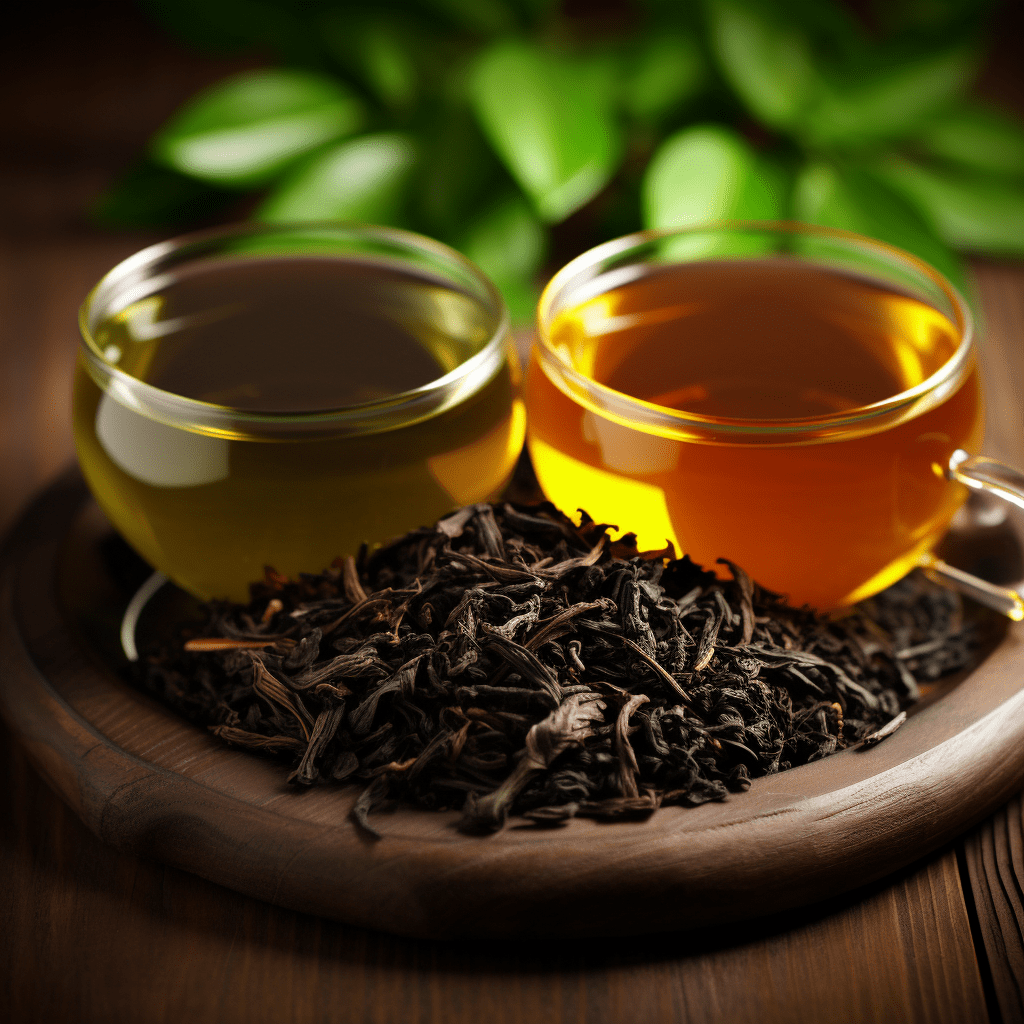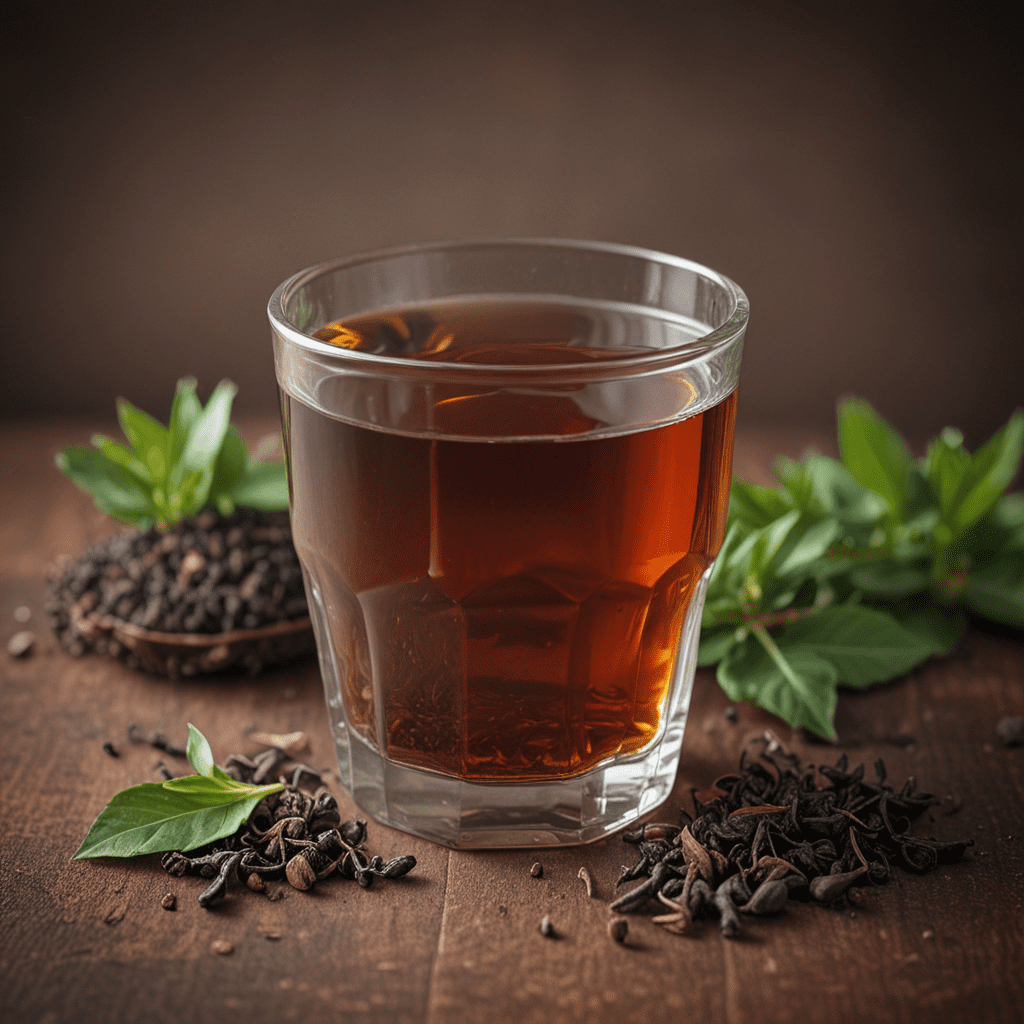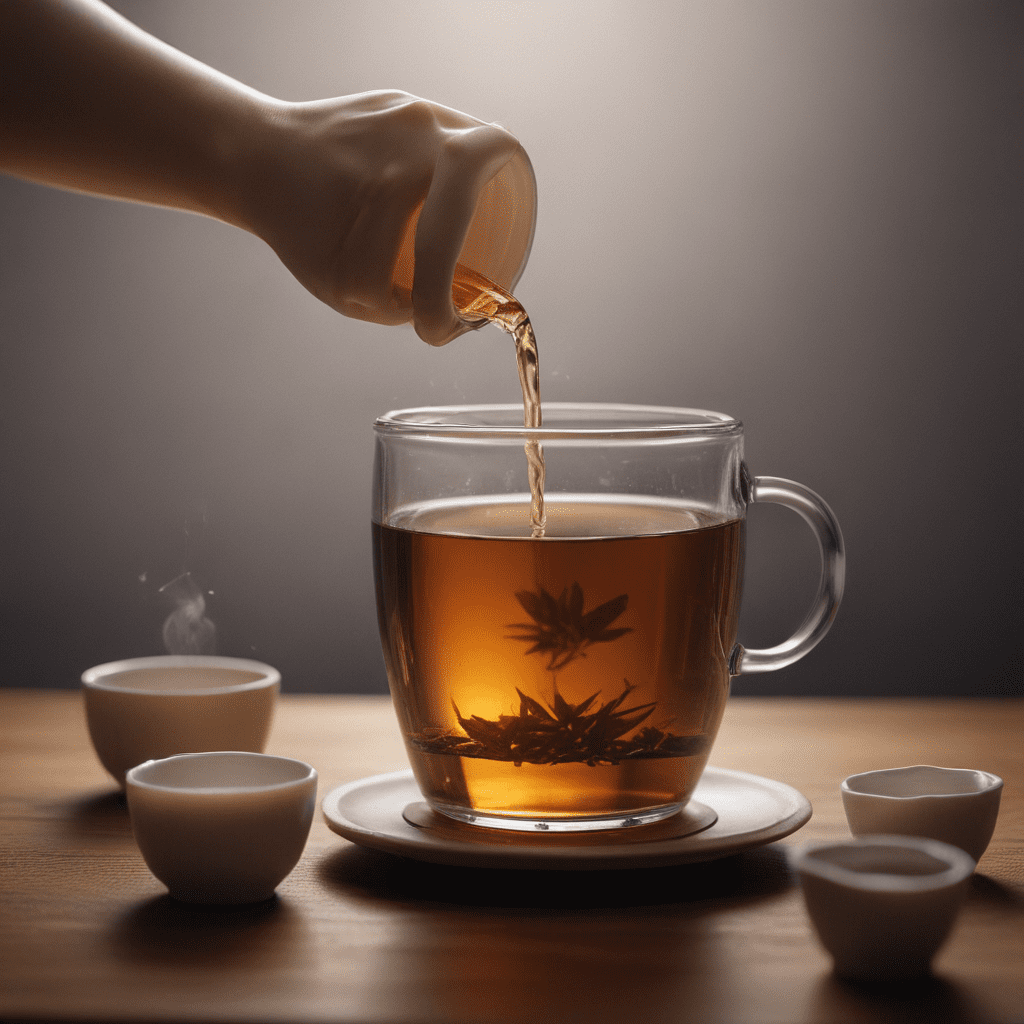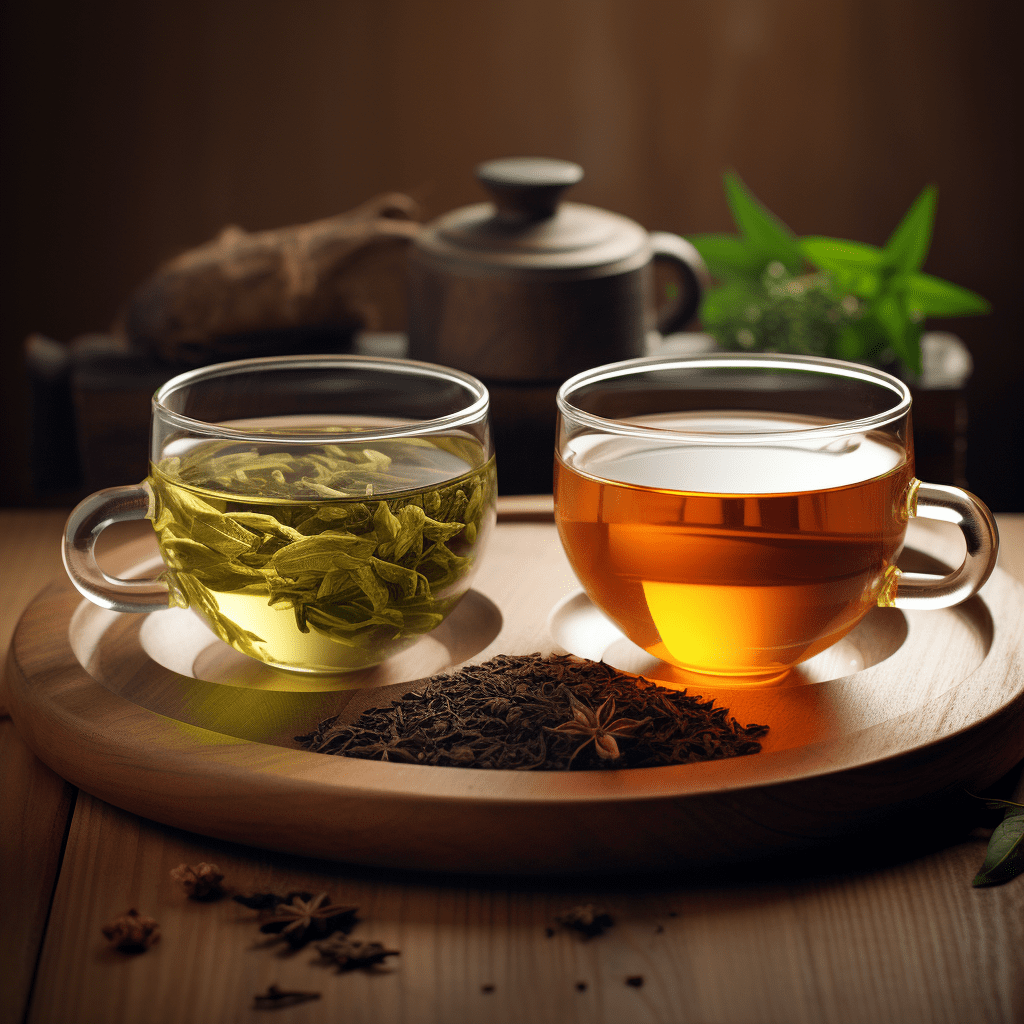
The Difference Between Green and Black Tea
Tea is one of the most commonly consumed beverages in the world, and it comes in various types, including green and black tea. While both are derived from the Camellia sinensis plant, they undergo different processing methods, resulting in distinctive flavors, aromas, and health benefits. In this article, we will explore the key differences between green and black tea.
1. Processing Methods
The primary difference between green and black tea lies in their processing methods. Green tea is produced by steaming or pan-frying fresh tea leaves immediately after they are picked. This process helps preserve the natural color and nutrients found in the leaves, giving green tea its characteristic green hue and fresh flavor.
On the other hand, black tea undergoes a more extensive oxidation process. After the leaves are harvested, they are withered and rolled to break down the cell walls and release enzymes. These enzymes interact with oxygen, leading to oxidation and the development of complex flavors. The leaves are then fully oxidized through a process called fermentation before being dried and packaged.
2. Flavor Profiles
Due to contrasting processing methods, green and black tea exhibit distinct flavor profiles. Green tea is typically described as light, fresh, and grassy, with a slightly vegetal or seaweed-like taste. Some popular varieties of green tea include sencha, matcha, and jasmine tea.
On the other hand, black tea is known for its robust, full-bodied flavor. It often carries notes of malt, caramel, and even floral or fruity undertones. Assam, Darjeeling, and Earl Grey are among the popular black tea varieties consumed worldwide.
3. Caffeine Content
While both green and black tea contain caffeine, the content may vary due to factors such as brewing time and tea leaf quality. As a general rule, green tea tends to have lower caffeine levels compared to black tea. On average, an 8-ounce cup of green tea contains approximately 20-30mg of caffeine, while black tea contains around 30-60mg. However, these values can vary depending on the specific tea variety and brewing methods.
4. Health Benefits
Green and black tea offer various health benefits attributed to their unique compositions. Green tea is rich in antioxidants, particularly catechins, which are known for their potential anti-inflammatory and cancer-fighting properties. It has also been associated with improved brain function, weight management, and a lower risk of heart disease.
Black tea, on the other hand, contains a class of compounds called theaflavins and thearubigins, which are formed during the oxidation process. These compounds have been linked to potential benefits such as improved gut health, reduced blood pressure, and enhanced blood sugar control.
5. Brewing Methods
Both green and black tea can be brewed using different methods, but there are some variations in recommended brewing techniques. Green tea is delicate and more sensitive to high temperatures, making it ideal to steep in water that is around 175°F (80°C). Too hot water can result in a bitter taste. Steeping time for green tea is generally between 2-3 minutes.
On the other hand, black tea can withstand higher temperatures and requires boiling water, typically around 212°F (100°C). Black tea is often steeped for 3-5 minutes, but it can be adjusted based on personal preference for a stronger or milder flavor.
6. Frequently Asked Questions (FAQ)
Q1. Does green tea have more health benefits than black tea?
While both green and black tea offer their unique health benefits, it’s challenging to determine which one is definitively better. The health benefits can vary depending on the specific compounds present in the tea, the individual’s health condition, and lifestyle factors. Incorporating both green and black tea into your diet can provide a broader range of health-promoting substances.
Q2. Can I add milk to green or black tea?
While it is common to add milk to black tea, it is generally not recommended for green tea. The delicate flavors of green tea can be overpowered by the addition of milk. However, personal taste preferences may vary, and some individuals may enjoy the combination. It is best to try it out and see what works for you.
Q3. Which tea has a higher caffeine content – green or black tea?
Black tea generally has a higher caffeine content compared to green tea. The difference in caffeine levels is primarily due to the varying processing methods and the oxidation process that black tea undergoes. However, the exact caffeine content can vary depending on the specific tea variety, brewing method, and other factors.
Q4. Can green or black tea help with weight loss?
Both green and black tea have been associated with potential benefits for weight management. Green tea, in particular, is often touted for its metabolism-boosting properties. It may help enhance fat oxidation and increase thermogenesis, leading to the burning of calories. However, it is important to note that tea alone is unlikely to provide significant weight loss results. It should be incorporated as part of a healthy diet and lifestyle.
Q5. Can I mix green and black tea together?
Yes, you can mix green and black tea together to create your own blend. This can result in a unique flavor profile that combines the freshness of green tea with the robustness of black tea. Experimenting with different tea combinations can be a fun and enjoyable way to discover new taste experiences.
In conclusion, green and black tea differ in terms of processing methods, flavor profiles, caffeine content, and health benefits. Whether you prefer the light, grassy taste of green tea or the bold, full-bodied flavor of black tea, both options offer a range of sensory experiences and potential health advantages. Consider exploring both varieties to elevate your tea-drinking journey.


